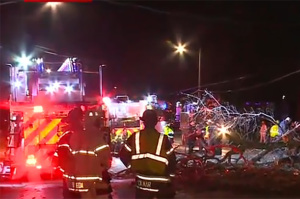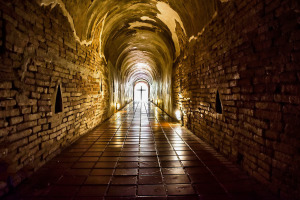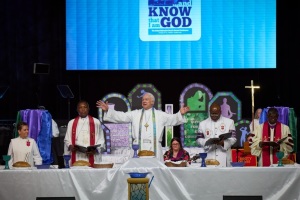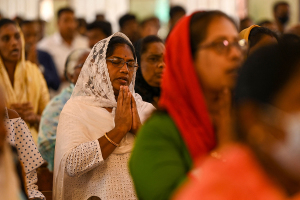Religion a 'regular part of the public school day' for US teens, Pew study finds

While religion in schools is a contentious subject in the courts, a new Pew study has found that for many of today’s teenagers, public expressions of religion are a normal and accepted part of their public school experience.
In a study released on October 3, Pew surveyed five types of religious expressions and activities: Wearing religious clothing or jewelry, praying before a sporting event, inviting other students to youth groups or services, praying before eating lunch, and reading religious scripture during the school day.
According to the study, 67 percent of teenagers said they see at least some sort of religious expression at public school on a regular basis. Overall, 53 percent of students often or sometimes see students wear clothing or jewelry with religious symbols, and 39 percent of students often or sometimes have seen peers pray before a school sports event, Pew said.
Showing slightly less participation, about 26 percent of students have seen peers praying before eating lunch, and eight percent have seen students reading religious scriptures outside of class, Pew said.
"While several previous surveys have examined the religious lives of teenagers," Pew said in a press release, "this is the first large-scale, nationally representative survey asking teens a series of questions about their own practices and perceptions regarding religious expressions in public schools."
The survey is "important to the broader study of religion in American society," Pew said, "because of the friendships adolescents form in their classes and the way they experience religion in public spaces during some of their most formative years."
Among religiously affiliated teenagers, evangelical Protestants were the most likely to pray at lunch or invite others to a church event. In total, 39 percent say they often or sometimes prayed before they ate, while 43 percent say they’d invited friends to a youth group activity or similar religious event. In comparison, just 11 percent of mainline Protestant teens say they pray before they eat at school and just 21 percent have invited friends to a church event.
Additionally, while most American teens (64%) say they rarely or never discuss religion with their friends, evangelical Protestants are much more likely than others to engage in this type of religious behavior.
Roughly six-in-ten evangelical teens say they sometimes (47%) or often (11%) talk to their friends about religion, compared with four-in-ten mainline Protestant teens, a third of Catholics and about one-in-five religious “nones.”
Interestingly, Pew also found that teenagers with no religious affiliation are far less likely than their religious peers to notice public displays of religion at school. Just 17 percent of atheist, agnostic or religiously unaffiliated teens say they sometimes or often see people invited to religious activities outside of school, compared to nearly twice the amount of Christian teens who say the same.
The study was conducted in March and April of about 1,800 13- to 17-year-olds. Pew included students from many religious backgrounds, including Christian and non-Christian faiths.
Controversies regarding religion in schools have continued to arise in U.S. high schools in recent months.
In September, a Middle Tennessee school district came under fire after an atheist group lodged a formal complaint accusing educators of violating the U.S. Constitution when they allowed two student-athletes to be baptized on the school’s football field in front of teammates.
Also in September, the Young Life national Christian group was denied recognition as an official student group at North Carolina's Duke University because it bars members of the LGBT community from holding leadership posts.
In January, the U.S. Supreme Court declined to hear an appeal from high school coach Joe Kennedy in Washington state who was fired for praying repeatedly on the football field.
"Where exactly to draw the line between constitutionally protected religious activity and impermissible state-sponsored indoctrination remains under dispute," Pew said.





























